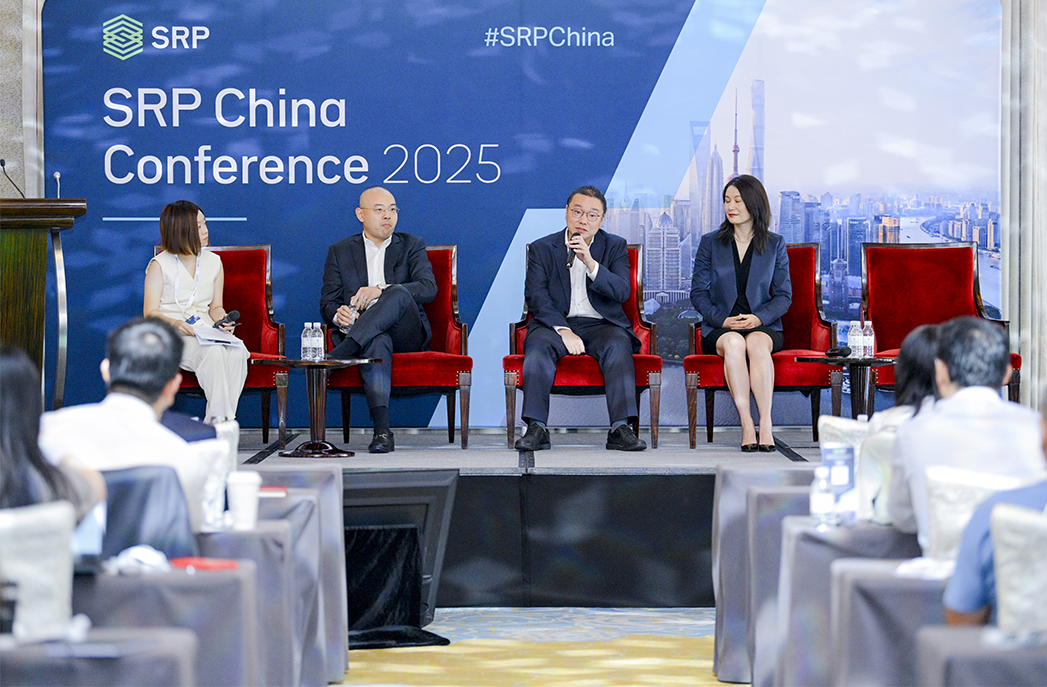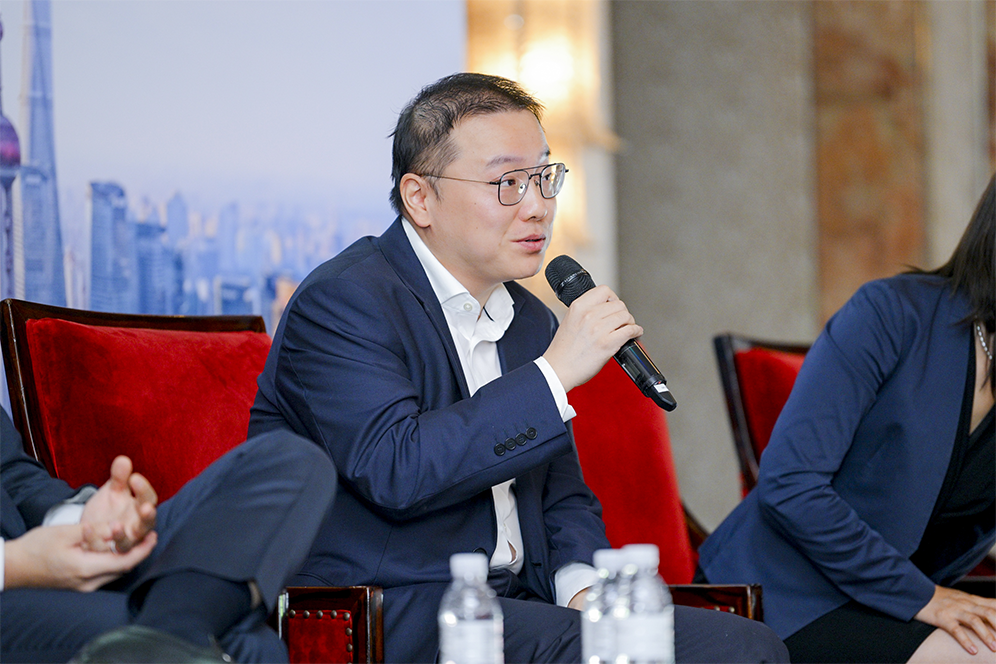Panellists have shared how the macro environment shapes Chinese investors’ product demands at SRP China 2025 conference in Shanghai on 17 June.
A growing number of Chinese investors have started embracing longer-tenor structured products to capture higher yields in the country’s prolonged low interest environment, according to Ethan Zhang (pictured), head of China equity derivatives sales at J.P. Morgan, who kicked off the first panel discussion of the day.
Chinese investors are [traditionally] not necessarily the most patient group of investors – people always looked for short tenors - Ethan Zhang, J.P. Morgan
“Chinese investors are [traditionally] not necessarily the most patient group of investors – people always looked for short tenors,” Zhang said. “But I think now they are more receptive to products that are two years [or] three years in duration. For autocall products, the terms could even be five, six or seven years.”
Global investors across various profiles have been showing greater interest in Chinese equities because the A-Shares’ recent low implied volatility but wider basis lately, Zhang noted.
“Over the past two to three months, we've seen a large number of overseas investors have been interested in long China equity while buying in cheap downside-protected [puts] to express moderately bullish views on the China market,” he said, adding that covered call strategies are among the trending discussions with clients.
Left to right: Jocelyn Yang, SRP (moderator); Ethan Zhang, J.P. Morgan; Yuanning He, Shenwan Hongyuan Securities; and Joy Xu, Standard Chartered Bank
The low interest rate environment has also made capital protection structures more relevant, despite limited product choices for investors such as digital or dual ranges, said Yuanning He, head of OTC derivatives trading, financial innovation at Shenwan Hongyuan Securities.
For non-principal-protected structures, risk appetites have diverged between retail or high-net-worth individuals versus institutional clients, He noted.
The payoff mechanism of retail or high-net-worth individuals-focused autocallable notes has shifted to the “safer” side, with stepdown autocall features or phoenix structures’ knock-in barriers driving more activity, because of the sluggish performance of A-Shares underlyings over the past few years.
In comparison, the convictions of institutional clients have increased following the Chinese government’s announcement of stimulus measures last September, pushing these types of clients a higher interest in airbag autocallables and the desire for upside participation, he said.
‘H Shares over A Shares’
Both Zhang and He agreed that Chinese investors have a high interest in participating in H-Shares this year, boosted by the breakthrough of the artificial intelligence (AI) startup DeepSeek at the start of the year.
Yuanning He, Shenwan Hongyuan Securities
“Professional investors’ enthusiasm for H-Shares is a lot higher than A-Shares this year,” said He. “Not only around the Chinese New Year, but also this wave of technology stocks [has prompted] everyone to think that Alibaba and other [tech] stocks are must-buys.
“To some extent, if clients wanted to participate directly at that time, they might have been more straightforward to buy them using the delta-one structure to first react from the fast-checking market,” he continued.
“Now, we see that there may be more cases of some airbag structures tracking the Hang Seng Tech Index or its constituent stocks.".
De-dollarisation?
Looking ahead, J.P. Morgan’s Zhang said that de-dollarisation is among the top topics for both Chinese and overseas investors during conversation with clients.
“The next big question is, where does your money go after de-dollarisation? Based on global investors' flow we've seen, for those who choose to de-dollar, I think developed markets are still their top [alternative] choices, such as Europe and Japan,” he said.
Among uncertainties of global assets, there's more recognition now that the China or pan-China assets have a “relatively more stable outlook” for global investors, he noted.
“People may have a rough idea of the downside protection, but the upside remains a process and is something that can only be truly materialised with more perhaps assertive monetary and fiscal policies. But still, I think the optimism is real,” Zhang said.
“I think that the next question then is, ‘what are the strategies or product structures that you should choose to gain such exposure?’” added Zhang.
Shenwan Hongyuan’s He noted that the recent wide basis of A-Shares provides an entry opportunity to buy vanilla calls on China assets for those who bet on China’s recovery.
Still, the high concentration among small caps and micro caps remains to be closely watched, the senior trader said.
“But my personal view is that we're in a better situation than February 2024 because that was a risk event that has already happened in history. And therefore, people are more aware of the risk and know they need to control the exposure,” he concluded.
Do you have a confidential story, tip or comment you’d like to share? Write to jocelyn.yang@derivia.com



